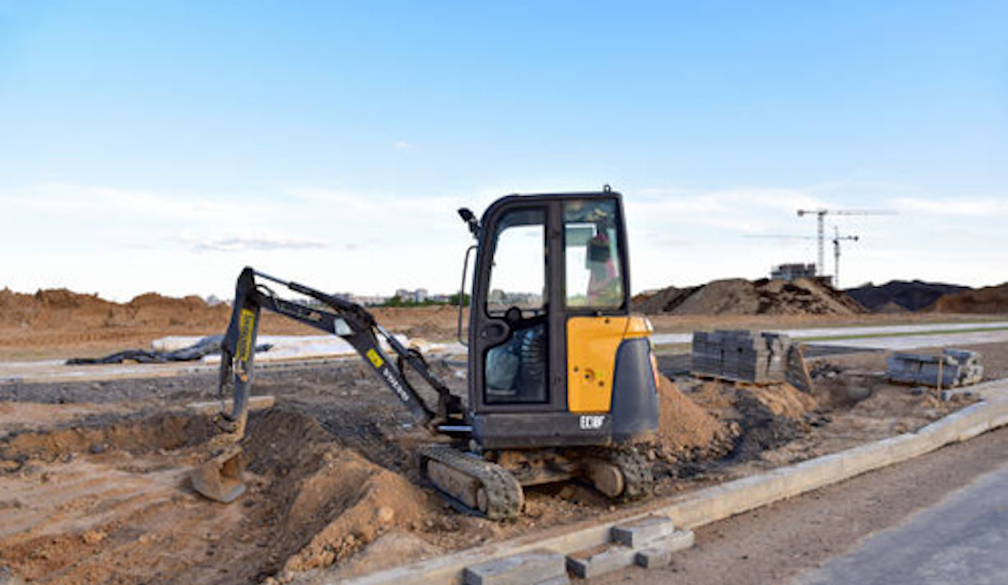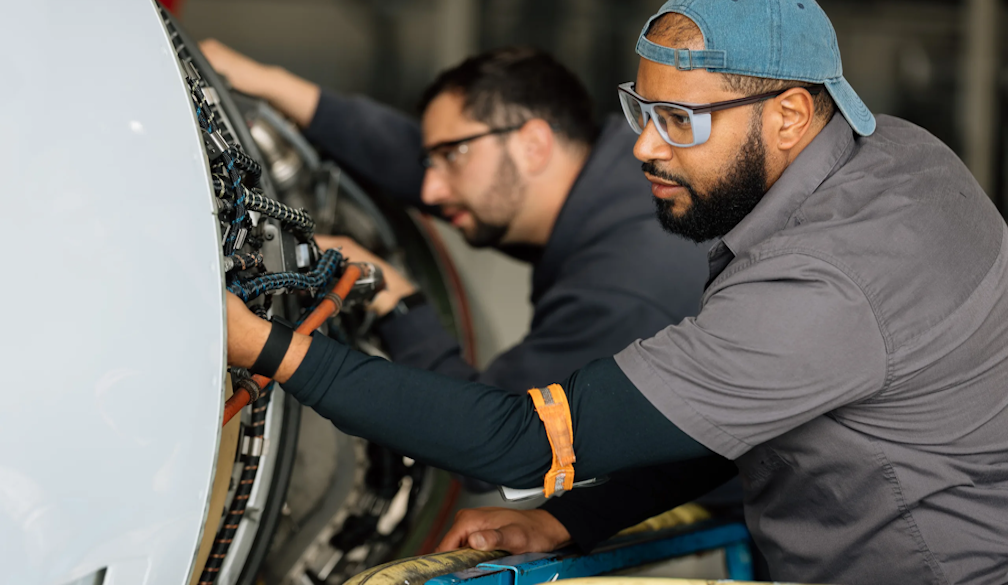Mini Diggers: The Future of Excavation and Earthmoving

In the realm of construction and landscaping, the demand for efficient and versatile equipment is ever-growing. As Australia continues to witness urban expansion and infrastructure development, the role of mini diggers is increasingly crucial. These compact machines have revolutionized excavation and earthmoving practices, offering agility, precision, and environmental benefits. In this opinion piece, we delve into why mini diggers represent the future of excavation and earthmoving in Australia.
What are Mini Diggers and Why are They Gaining Prominence?
Mini diggers, also known as compact excavators, are small yet powerful machines designed for various tasks, including digging trenches, demolition, and lifting heavy materials. Their compact size allows them to maneuver through tight spaces with ease, making them ideal for urban construction projects where space is limited. Moreover, advancements in technology have enhanced their performance and efficiency, making them increasingly popular among construction professionals and contractors.
Agility and Versatility: Meeting the Demands of Urban Construction
One of the primary reasons for the rising popularity of mini diggers is their agility and versatility. Traditional excavators often struggle to navigate confined spaces and operate in urban environments where access is restricted. Mini diggers, on the other hand, excel in such conditions due to their compact dimensions and maneuverability. Whether it's excavating foundations for a new building or clearing debris from a demolition site, these machines can tackle a wide range of tasks efficiently.
Efficiency and Productivity: Doing More with Less
In an era where time is of the essence, efficiency is paramount. Mini diggers offer significant time and cost savings compared to their larger counterparts. Their smaller size means they require less space to operate and can be transported more easily between job sites. This translates to reduced downtime and increased productivity, allowing construction projects to stay on schedule and within budget. Moreover, advancements in hydraulic systems and attachments have further enhanced their efficiency, enabling operators to perform multiple tasks without the need for additional equipment.
Environmental Benefits: Reducing Carbon Footprint
With growing concerns about environmental sustainability, the construction industry is under pressure to adopt greener practices. Mini diggers present a more environmentally friendly alternative to traditional excavators, thanks to their smaller engines and reduced fuel consumption. By consuming less fuel and emitting fewer pollutants, these machines help minimize the carbon footprint of construction projects. Additionally, their precise operation minimizes the risk of damage to surrounding vegetation and infrastructure, further contributing to environmental conservation efforts.
The Rise of Compact Urban Development: Meeting the Challenges
Australia's urban landscape is undergoing rapid transformation, with cities expanding and densifying at an unprecedented rate. In this context, mini diggers have emerged as indispensable tools for navigating the challenges of compact urban development. Whether it's excavating trenches for utility lines or landscaping small green spaces, these machines play a crucial role in shaping the built environment while minimizing disruption to existing infrastructure and communities.
Investment in Innovation: Paving the Way for the Future
As the demand for mini diggers continues to grow, manufacturers are investing in innovation to stay ahead of the curve. From electrification and autonomous operation to enhanced connectivity and telematics, the future of excavation and earthmoving is poised for groundbreaking advancements. These innovations not only improve the performance and efficiency of mini diggers but also pave the way for more sustainable and environmentally friendly construction practices.
Challenges and Opportunities Ahead: Overcoming Barriers to Adoption
Despite their numerous advantages, mini diggers also face challenges that must be addressed to fully realize their potential in the Australian construction industry. One such challenge is the initial cost of investment, as mini diggers tend to have a higher upfront price compared to traditional excavators. However, this cost is often offset by long-term savings in fuel, maintenance, and labor expenses.
Another barrier to adoption is the perception that mini diggers are only suitable for small-scale projects. While they excel in confined spaces, these machines are capable of handling a wide range of tasks, from residential landscaping to large-scale infrastructure projects. Educating contractors and construction professionals about the capabilities of mini diggers is essential to dispel this misconception and encourage their widespread adoption.
Moreover, as with any technological innovation, there may be resistance to change from industry stakeholders accustomed to traditional excavation methods. However, by showcasing the efficiency, productivity, and environmental benefits of mini diggers through real-world examples and case studies, it is possible to overcome this resistance and foster greater acceptance within the industry.
Government Support and Regulatory Frameworks: Driving Adoption and Innovation
To further promote the adoption of mini diggers and encourage innovation in the field of excavation and earthmoving, government support and regulatory frameworks play a crucial role. Incentives such as tax breaks or subsidies for purchasing eco-friendly equipment can incentivize construction companies to invest in mini diggers and other sustainable technologies.
Additionally, policymakers can implement regulations and standards that prioritize the use of environmentally friendly construction equipment, such as mini diggers with low emissions and noise levels. By setting clear guidelines and requirements, governments can create a level playing field for manufacturers and encourage the development of more advanced and efficient mini digger technologies.
Furthermore, government-funded research and development initiatives can drive innovation in the field of excavation and earthmoving, leading to the creation of more advanced and sustainable solutions. By collaborating with industry stakeholders and academic institutions, governments can support the development of cutting-edge technologies that enhance the performance, efficiency, and environmental sustainability of mini diggers.
The Role of Training and Skills Development: Empowering Operators for Success
In addition to technological advancements and regulatory support, training and skills development are essential for maximizing the potential of mini diggers in the construction industry. Operating these machines requires specialized knowledge and expertise, particularly when it comes to safety protocols and best practices.
By investing in training programs and certification courses for operators, construction companies can ensure that their workforce is equipped with the skills and knowledge necessary to operate mini diggers safely and efficiently. Moreover, ongoing training and professional development opportunities can enable operators to stay abreast of the latest advancements in mini digger technology and techniques.
Furthermore, fostering a culture of continuous learning and improvement within the construction industry can drive innovation and productivity. By encouraging collaboration and knowledge sharing among operators, contractors, and equipment manufacturers, the industry can collectively harness the full potential of mini diggers and other advanced technologies.
Continuing the Momentum: Industry Collaboration and Knowledge Sharing
To sustain the momentum of mini diggers as the future of excavation and earthmoving in Australia, fostering industry collaboration and knowledge sharing is paramount. Collaboration between manufacturers, construction companies, government agencies, and industry associations can drive innovation and address common challenges more effectively.
By sharing best practices, lessons learned, and technological advancements, stakeholders can collectively identify opportunities for improvement and innovation in mini digger design, operation, and maintenance. Additionally, collaboration can facilitate the development of standardized training programs and certification processes to ensure that operators are equipped with the skills and knowledge needed to operate mini diggers safely and efficiently.
Furthermore, industry collaboration can promote the adoption of sustainable practices and technologies throughout the construction sector. By sharing insights and experiences, stakeholders can identify opportunities to reduce waste, minimize environmental impact, and improve overall project sustainability.
Harnessing the Power of Data and Analytics: Optimizing Performance and Efficiency
In the digital age, data has become an invaluable asset for optimizing performance and efficiency across various industries, including construction. Mini diggers equipped with sensors and telematics systems can collect data on operating conditions, fuel consumption, and maintenance needs in real time, providing valuable insights for operators and fleet managers.
By analyzing this data, construction companies can identify areas for improvement, optimize equipment utilization, and proactively address maintenance issues to minimize downtime. Additionally, data-driven insights can inform strategic decision-making and resource allocation, leading to greater efficiency and cost savings over time.
Furthermore, advancements in artificial intelligence and machine learning hold the potential to revolutionize the way mini diggers are operated and managed. By leveraging AI-powered algorithms, these machines can autonomously adapt to changing conditions, optimize performance, and enhance safety, thereby improving overall project outcomes.
Adapting to Evolving Industry Trends and Challenges
As the construction industry continues to evolve, driven by technological advancements, changing consumer preferences, and regulatory requirements, the role of mini diggers will also evolve to meet new challenges and opportunities. Adapting to these trends requires ongoing innovation, flexibility, and a willingness to embrace change.
For example, the rise of modular construction and prefabrication techniques presents new opportunities for mini diggers to streamline site preparation and assembly processes. By working closely with architects, engineers, and project managers, mini digger manufacturers can develop specialized attachments and accessories tailored to the unique needs of prefabricated construction projects.
Moreover, as sustainability becomes an increasingly important consideration for construction projects, mini diggers will play a vital role in minimizing environmental impact and maximizing resource efficiency. From electric-powered models to biofuel alternatives, manufacturers are exploring a range of innovative solutions to reduce emissions and promote eco-friendly practices.
Paving the Way for a Sustainable and Efficient Future
In Clousing, mini diggers are poised to become the cornerstone of excavation and earthmoving operations in Australia, offering unmatched agility, efficiency, and environmental benefits. By embracing technological innovation, industry collaboration, and data-driven decision-making, stakeholders can harness the full potential of these versatile machines to drive sustainable growth and development across the construction sector.
As Australia continues to undergo urbanization and infrastructure expansion, the demand for mini diggers will only continue to grow. By investing in training, regulatory support, and sustainable practices, the construction industry can ensure that mini diggers remain at the forefront of excavation and earthmoving operations for years to come, paving the way for a more sustainable and efficient future.
Article suggested by OzDiggers






